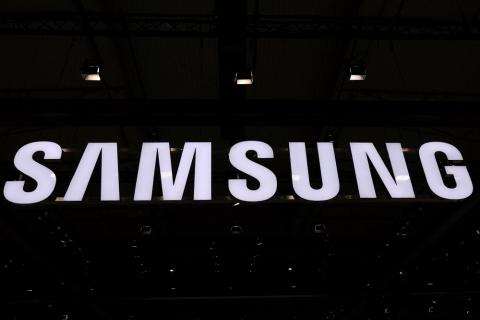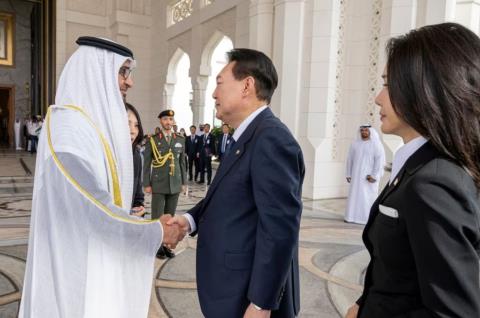
South Korean tech giant Samsung Electronics expects to invest $230 billion over the next 20 years to develop what the country's government called the world's largest chip-making base, in line with efforts to boost the national chip industry.
Samsung's around 300 trillion won project is part of a 550 trillion won private-sector investment plan unveiled by the government on Wednesday. Seoul's strategy aims to expand tax breaks and support to raise competitiveness of high-tech sectors including those involving chips, displays and batteries.
The plans come as other countries introduce steps to bolster domestic chip industries, including the United States which last month released details of its CHIPS Act, offering billions of dollars in subsidies for chipmakers that invest in the country.
"The economic battlefield, which recently began with chips, has expanded ... countries are providing large-scale subsidies and tax support," said President Yoon Suk Yeol on Wednesday.
"(We) must support private investments to ensure further growth ... the government must provide location, R&D, manpower, and tax support."
Samsung's manufacturing additions will include five chip factories and attract up to 150 materials, parts and equipment makers, fabless chipmakers and semiconductor research-and-development organizations near Seoul, the industry ministry said in a statement.
In addition to private-sector investment, the government will budget 25 trillion won or more over five years for R&D in strategic technologies such as artificial intelligence. It will provide about 360 billion won to develop chip packaging, and about 100 billion won in electricity and water infrastructure this year for industrial complexes.
In January, the government proposed raising the tax deduction rate for facility investments in chips and other strategic technologies from 8% to 15% for large corporations.
Separately, Samsung Electronics, unit Samsung Display, affiliates Samsung SDI and Samsung Electro-Mechanics said they plan to invest 60.1 trillion won in the next 10 years in regions outside the Seoul metropolitan area to develop chip packaging, displays and battery technology.
South Korea, home to the world's two biggest memory chip makers, Samsung Electronics and SK Hynix Inc, is seeking to improve supply-chain stability to become a major player in the non-memory chip field, currently dominated by chipmakers such as Taiwan Semiconductor Manufacturing Co Ltd and Intel Corp.












